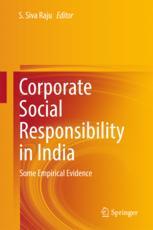

Most ebook files are in PDF format, so you can easily read them using various software such as Foxit Reader or directly on the Google Chrome browser.
Some ebook files are released by publishers in other formats such as .awz, .mobi, .epub, .fb2, etc. You may need to install specific software to read these formats on mobile/PC, such as Calibre.
Please read the tutorial at this link: https://ebookbell.com/faq
We offer FREE conversion to the popular formats you request; however, this may take some time. Therefore, right after payment, please email us, and we will try to provide the service as quickly as possible.
For some exceptional file formats or broken links (if any), please refrain from opening any disputes. Instead, email us first, and we will try to assist within a maximum of 6 hours.
EbookBell Team

4.7
26 reviewsThis book presents the authors’ recent field experiences of corporate social responsibility (CSR) activities in different regions of India. It also demonstrates how social auditing and stakeholder mapping help analyze the impact that particular individuals or groups may have on the functioning of any company in an area.
CSR is a rapidly growing area of research and activity, especially in developing countries like India. An increasing number of companies are realizing their own social responsibility, given that they work within societal networks. As a result, any initiation or expansion activity they carry out in society impacts the communities around them. Given the newness of the field, the work on CSR in India is still in the initial stages. Most importantly, there is a need to highlight issues concerning CSR activities using sound methodologies and scientific data. A database comprising qualitative and quantitative approaches collected by tracking CSR activities is invaluable. Further the scientific data is vital to fully understand CSR, and in turn helps in designing appropriate and effective interventions for improving community members’ quality of life. Accordingly, the stakeholders associated with CSR need to have a sound knowledge of how to conduct studies related to baseline data generation, community needs assessments, community profiling, stakeholder mapping, social impact assessments, monitoring and evaluation, as well as the social auditing of CSR projects and other related issues. This book aptly covers these issues and offers supporting empirical evidences from the field.